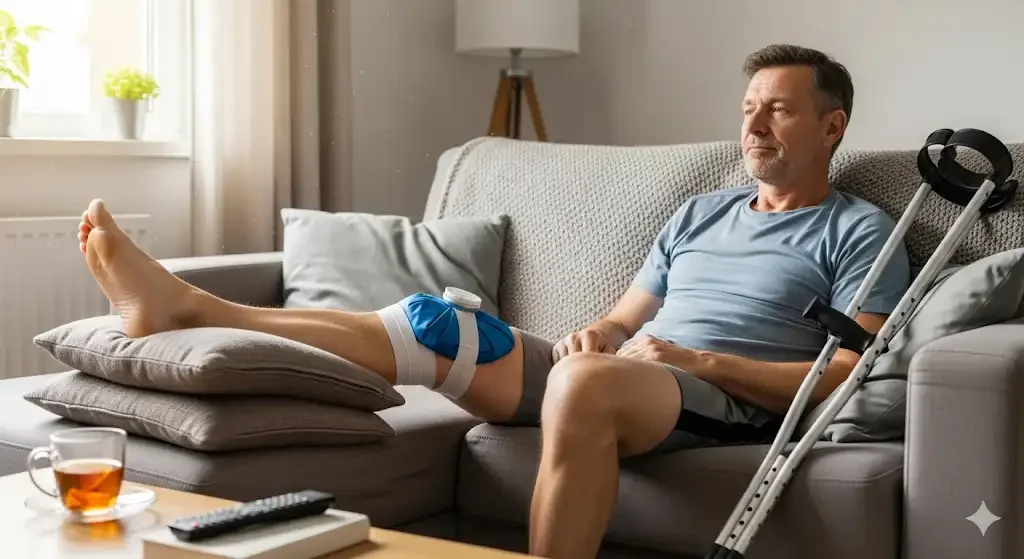Knee Arthroscopy Recovery Time: What to Expect
Knee arthroscopy surgery is a widely used, minimally invasive technique to treat joint problems like meniscus tears, ligament damage or loose cartilage. While it generally allows for faster recovery than open surgery, understanding the expected timeline and what you’ll need to do during recovery is essential for a safe and successful return to activity.
Below is a week-by-week overview of the arthroscopy knee recovery time, with practical guidance to support your recovery.
What Is Knee Arthroscopy?
Knee arthroscopy is a surgical technique where a small camera (arthroscope) is inserted into the knee joint through tiny incisions. The surgeon uses this to assess and treat various issues, such as:
Torn meniscus
Damaged cartilage
Loose bone or cartilage fragments
Inflamed synovial tissue
Compared to traditional open surgery, minimally invasive knee surgery usually results in less pain, lower risk of infection and a faster recovery.
Learn more about the procedure on our Knee Arthroscopy Surgery page.
How Long Is Recovery After Knee Arthroscopy?
Most people can walk with assistance within a day or two and return to regular activities in four to six weeks. However, the exact arthroscopy knee recovery time depends on your age, overall health and the type of procedure performed.
Here’s a general guide to what you can expect.
Week 1: Rest and Initial Healing
You’ll likely go home on the same day as your surgery. During the first few days:
Rest and keep your leg elevated
Apply ice regularly to reduce swelling
Use crutches to limit pressure on the joint
Take pain relief as prescribed
Physiotherapy may begin immediately or within a few days. This usually involves gentle range-of-motion exercises to prevent stiffness.
Week 2: Gentle Movement and Reduced Swelling
By now, swelling and pain should begin to improve. You might:
Start walking short distances with or without crutches
Resume light daily tasks around the home
Increase movement and strength with guided exercises
If you had a simple debridement or cartilage smoothing procedure, your recovery may be quicker. Those who have had meniscus repair or ligament surgery may still need crutches or a brace.
Weeks 3 to 6: Building Strength and Stability
As you get stronger, your physio will become more targeted. Expect to:
Regain more knee motion
Improve muscle strength and control
Transition from crutches to walking unaided
Most patients return to work during this phase, especially for desk-based roles. However, jobs that involve physical labour may require a longer recovery.
Week 7 and Beyond: Returning to Normal Activities
Many people can return to moderate activity, low-impact sport and most work duties by this point. Continued physiotherapy helps rebuild strength and coordination.
Patients who had more complex surgery, like ACL reconstruction or PCL reconstruction surgery, may need ongoing support for several months.
Crutches After Knee Arthroscopy: How Long Will You Need Them?
How long you use crutches depends on the type of procedure:
Minor debridement: one to three days
Meniscus repair: one to two weeks
Ligament reconstructions: up to six weeks or more
Your surgeon and physio will guide you on when it’s safe to wean off support. It’s important not to rush this process, as returning to full weight-bearing too soon can cause setbacks.
What Can Delay Recovery?
Every patient heals at their own pace, but a few factors can impact your arthroscopy knee recovery time:
Pre-existing joint damage
Poor muscle strength or mobility before surgery
Skipping physiotherapy sessions
Smoking or chronic conditions like diabetes
Staying active, sticking to your rehab program and following medical advice are key to a smooth recovery.
When to Contact Your Surgeon
Watch out for warning signs that may indicate a complication:
Sudden increase in swelling or pain
Fever or chills
Redness or warmth around the incision
Difficulty moving your leg
These could suggest infection or joint issues that need attention. Don’t delay in seeking medical advice.
Need Help with Post-Surgical Recovery?
Whether you're recovering from knee surgery or looking for an orthopaedic surgeon in Melbourne to discuss your treatment options, our team is here to help. We offer a personalised approach to minimally invasive knee surgery, meniscus and ligament repair and long-term joint care. Dr David Sime performs hundreds of knee arthroscopy procedures per year and is regarded as one of the best knee surgeons in Melbourne.
Explore our services:
Knee Arthroscopy Surgery
Meniscus Repair
ACL Reconstruction
PCL Reconstruction Surgery
FAQs — Arthroscopy Knee Recovery Time
-
Most people recover within four to six weeks. More complex procedures may take three months or longer.
-
Yes, crutches are usually required for a few days up to several weeks, depending on the surgery.
-
You may be able to drive within one to two weeks if your reaction time is back to normal and you're off strong pain medications.
-
Most desk workers return within one to two weeks. Jobs involving standing or heavy lifting may require more time.
-
Staying mobile, attending physio, managing swelling and sticking to your rehab plan can all help.



